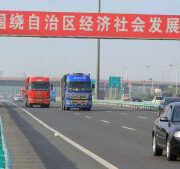Tag Archives | productivity
Economics, Health, Industry and trade
 Economics, Industry and trade
Economics, Industry and trade
 Economics, Education, Finance sector development, Poverty
Economics, Education, Finance sector development, Poverty
 Economics
Economics

Empowering Thai SMEs to join global value chains: Policy priorities under COVID-19

Small and medium-sized enterprises (SMEs) are significant contributors to economic activity and employment worldwide, and Thailand is no exception. In Thailand, SMEs represent the vast majority of firms and employ the bulk of the domestic workforce. According to the Office of SMEs Promotion (OSMEP 2019), in 2018, approximately 3 million companies were classed as SMEs in the country, comprising 99.8% of all companies. SMEs also accounted for 14 million jobs, or 86% of total employment.
Productivity spillovers from services firms in low- and middle-income countries: What is the role of firm characteristics and services liberalization?

It has been widely acknowledged that services play an important role for other industries, in particular manufacturing. A study by the Organisation for Economic Co-operation and Development (OECD) finds that services represent at least 30% of the value added in manufacturing exports (OECD 2014). Another study by the World Bank suggests that countries with a higher services content in their downstream economies are also those producing more complex goods (Saez et al. 2015).
What are the policy options for reversing productivity decline?

The world economy at present is in the middle of profound adjustment. Slow economic growth and obvious economic divisions are resulting in the self-fulfilling “low-growth trap”, while productivity is declining all over the world and income inequality is worsening at the country level. These trends have been interacting and blending with each other since the global financial crisis of 2008 and have triggered a vicious cycle that has become an obstacle to world economic recovery.
Structural reforms to sustain Asia’s growth

Economic growth in both developing and advanced economies has slowed since the global financial crisis. Developing Asia’s growth also moderated after the crisis, to a large extent driven by the slowdown in the People’s Republic of China (PRC). The region’s economy expanded on average 7.6% annually during 2001–2010, but growth slowed to an annual average of 6.5% during 2011–2015. ADB is projecting further deceleration to 5.7% in each 2016 and 2017.


Search
Subscribe / Connect to Asia Pathways
Subjects
- Agriculture and natural resources
- Blog
- Capacity development
- Climate change
- Economics
- Education
- Energy
- Environment
- Finance sector development
- Gender
- Governance and public sector management
- Health
- Industry and trade
- Information and Communications Technology
- Infrastructure
- Miscellaneous
- Population
- Poverty
- Private sector development
- Regional cooperation and integration
- Sanitation
- Social development and protection
- Transport
- Uncategorized
- Urban development
- Video Blog
- Water
Recent Posts
- Unraveling the Health Risks of Climate Change
- Linking Farmers to Markets Through Agricultural Cooperatives and E-Commerce in Asia
- How Can Governments Support Electricity Distribution to Achieve Net Zero in Asia?
- Promoting Corporate Climate Action Through Greenhouse Gas Accounting
- Evaluating G7 Commitments on Climate Change, Health, Well-Being, and Agriculture




Recent Comments